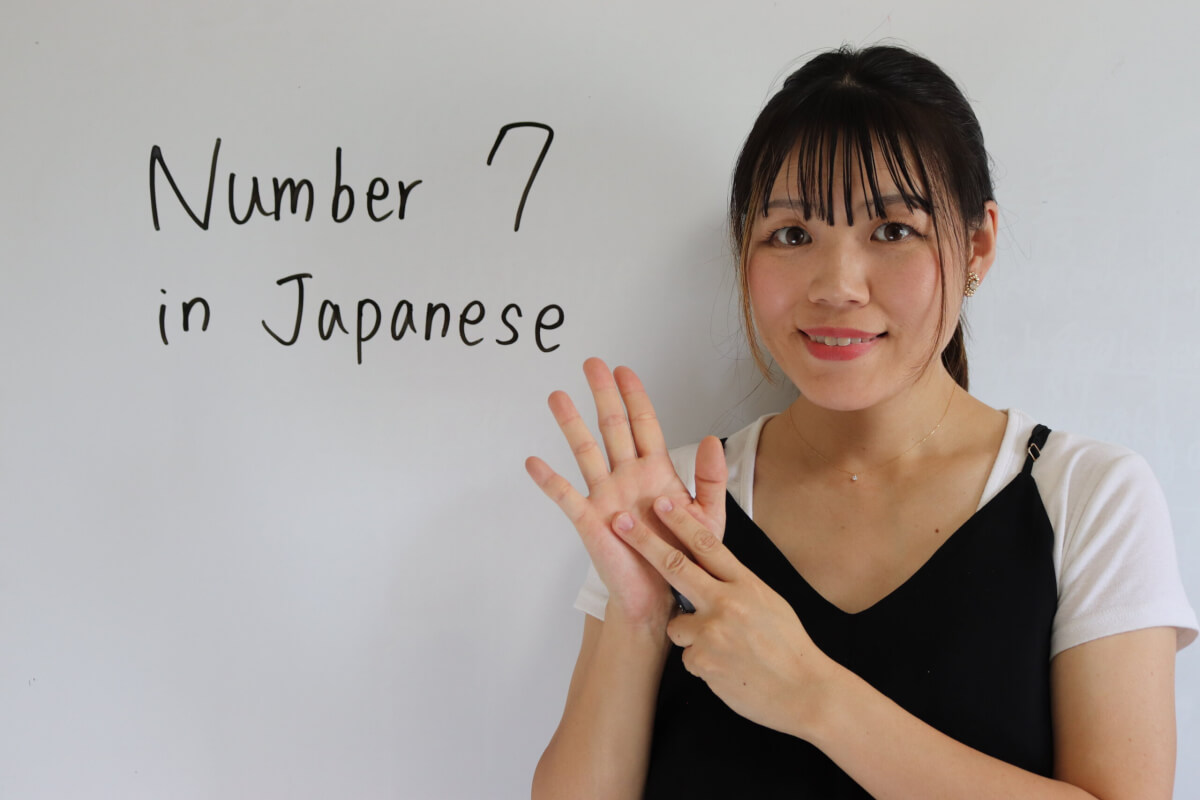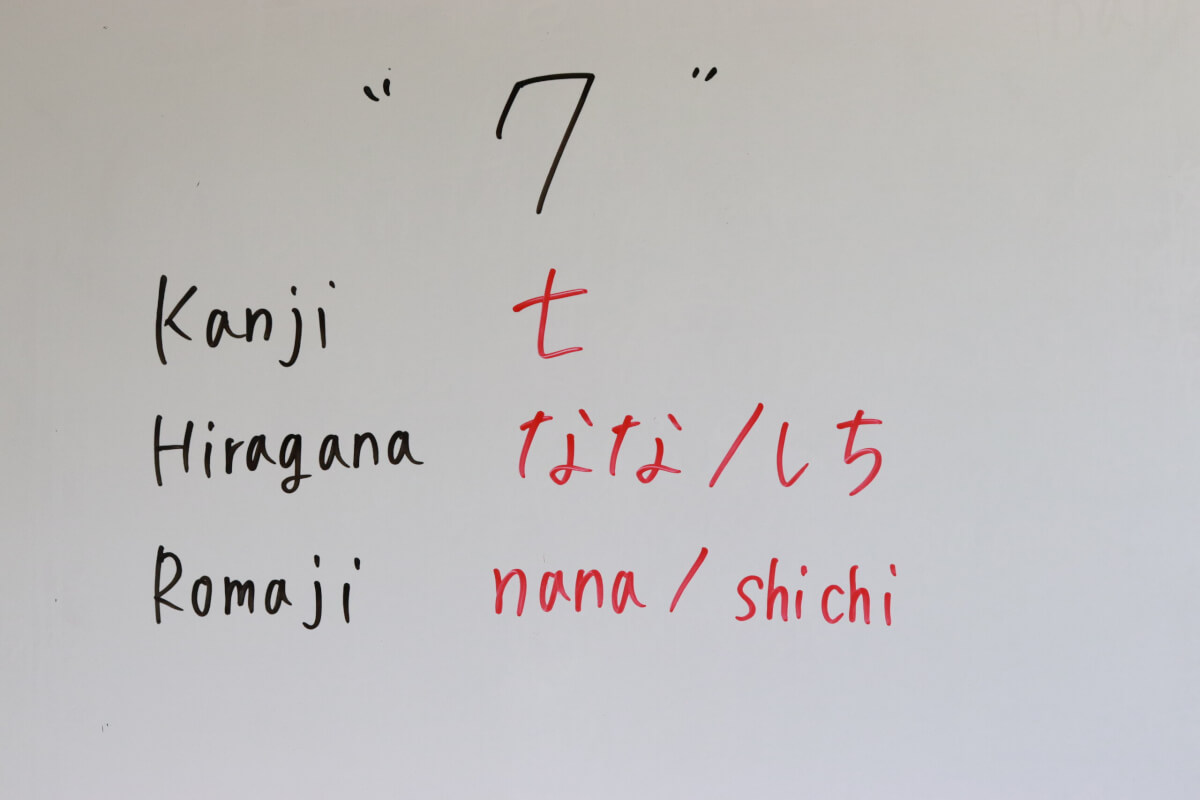- Release Date:
Number 7 in Japanese

Let's learn how to say “7” in Japanese.
How to say number seven in Japanese
The number “7” is "七" in Kanji and can be read in two ways: “しち /shichi/” and “七 /nana/".

Please remember both of these readings. “Nana” is used mostly, but it is sometimes read as “shichi” when counting things.
What does the number 7 mean in Japanese?
In Japan, the number "7" holds various meanings and is considered a special number. Here are some of the main examples:
- Lucky Number: The number 7 is often referred to as "ラッキーセブン /rakki-sebun/ Lucky Seven" and is generally regarded as a symbol of good fortune. While this concept is also influenced by Western culture, it is similarly recognized in Japan as a lucky number.
- Seven Lucky Gods: In traditional Japanese belief, there are seven deities known as 七福神 /shichi fuku jin/ the Seven Lucky Gods. Each of these gods brings different types of good fortune and benefits. They are particularly revered during the New Year.
- Tanabata: July 7th is known as "七夕 /tanabata/" a traditional Japanese festival. On this day, it is believed that the stars 織姫 /Orihime/ and 彦星 /Hikoboshi/, separated by the Milky Way, are able to meet just once a year. People write their wishes on small pieces of paper called 短冊 /tanzaku/ and hang them on bamboo branches.
- Cultural Influence: The number 7 frequently appears in Japanese culture and customs. Examples include 七草粥 /Nana kusa gayu/ a rice porridge with seven herbs eaten on January 7, 七五三 /Shi chi go san/ a traditional rite of passage for children aged three, five, and seven.
In summary, the number "7" in Japan carries significant meanings related to luck, tradition, and belief.
Japanese idioms using the number seven
There is a very nice idiom using the word “七 /nana, sichi/ seven.”
- 七転び八起き (ななころびやおき /nana korobi yaoki/): This proverb means to get up eight times after falling seven times. It signifies resilience and perseverance.
- 七難八苦 (しちなんはっく /shichi nan hakku/) : This phrase means numerous difficulties and hardships.
